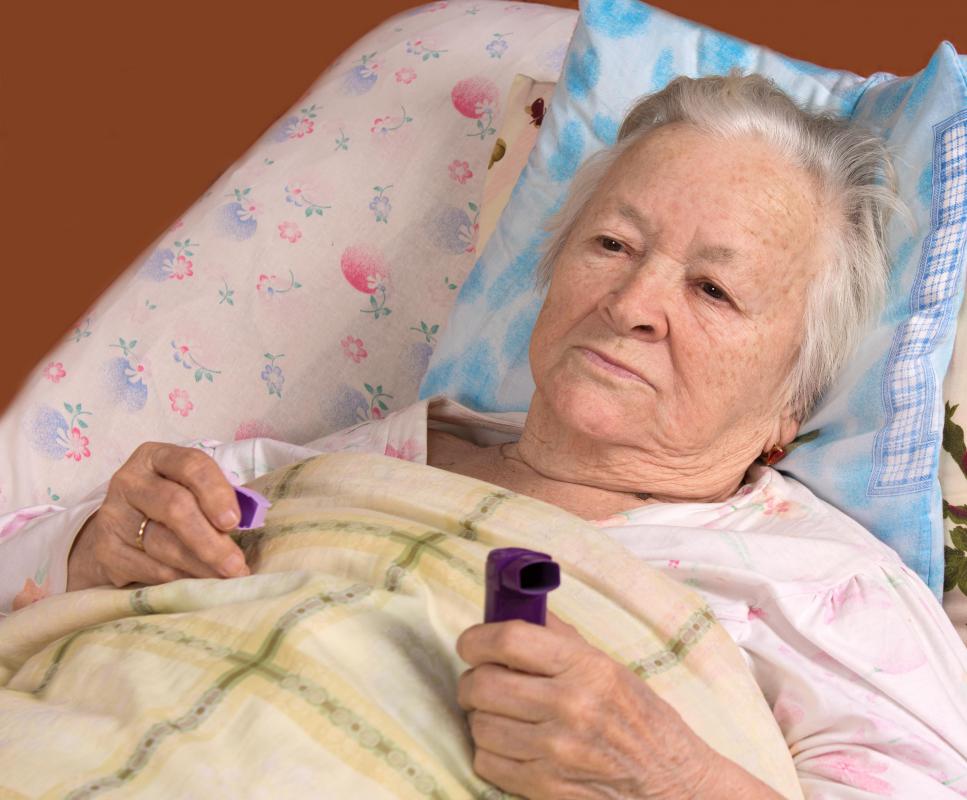At WiseGEEK, we're committed to delivering accurate, trustworthy information. Our expert-authored content is rigorously fact-checked and sourced from credible authorities. Discover how we uphold the highest standards in providing you with reliable knowledge.
What Is the Pneumonia Severity Index?
The pneumonia severity index (PSI) is a method of determining whether a person suffering from community-acquired pneumonia (CAP) is sick enough to be hospitalized. The clinical prediction rule uses scores on a series of questions to determine just how sick the patient is. Patients are divided into five risk categories using the PSI. The pneumonia severity index is seen as an accurate way to decide the best treatment for patients, but it is more difficult to use than another common method, the CURB-65.
The PSI was designed to calculate just how sick a patient is and how likely he is to die within 30 days after being diagnosed with community-acquired pneumonia. Pneumonia can be deadly for some patients, and the pneumonia severity index helps doctors decide which patients need to be in the hospital and which can be treated at home. This helps to free up resources for those patients who are severely ill while avoiding any unnecessary hospitalizations.

A series of questions is used to decide where a patient falls on the pneumonia severity index. The questions that are used cover information such as mental status, age, sex and medical history. Vital signs and lab test results also are used with the PSI. There are 20 questions, and each is assigned a certain amount of points.
A risk category is assigned based on the number of points. Patients who fall into the first two categories are given outpatient treatment and sent home with medication. A patient who falls into Category III may be treated at home using intravenous (IV) antibiotics or hospitalized briefly. Any patient that falls into the fourth or fifth categories should be treated in a hospital. There is an increased risk of death in the higher-risk categories, requiring constant monitoring in the hospital and treatment with stronger medications.

The pneumonia severity index requires 20 questions to be answered, so it is not as easy to use in an emergency room as the CURB-65 method, which is a method that decides how serious a case of community-acquired pneumonia actually is. The PSI method has been studied more and its effectiveness is documented, so even though it is more difficult to use, it often is the preferred method. Some doctors use the two methods in combination in an effort to provide the very best care for patients, often with successful results.
AS FEATURED ON:
AS FEATURED ON:















Discuss this Article
Post your comments